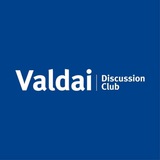#ValdaiYouth #Valdai_NewGeneration
Please open Telegram to view this post
VIEW IN TELEGRAM
#ValdaiYouth #Valdai_NewGeneration
Please open Telegram to view this post
VIEW IN TELEGRAM
#ValdaiYouth #Valdai_NewGeneration
Please open Telegram to view this post
VIEW IN TELEGRAM
🇮🇳 On June 9, Mr. Narendra Modi was sworn in as India’s Prime Minister for a third term in a grand ceremony at the presidential palace in Delhi.
At 73, Mr. Modi became only the second leader in the country’s history to win a third term, following in the footsteps of its first prime minister, Jawaharlal Nehru.
Prime Minister Narendra Modi’s third term balances continuity and change in India's foreign policy, emphasising strategic autonomy, regional stability, and deeper engagement with the Global South.
His "Neighbourhood First" policy, complex relations with China and Pakistan, and strengthened ties with Russia underscore India's commitment to a multipolar vision and a significant role in global governance, writes Rupal Mishra.
https://valdaiclub.com/a/highlights/charting-india-s-foreign-policy-course-challenges-/
🗣 The author is a participant of the Valdai - New Generation project.
#WiderEurasia #India #NarendraModi #Valdai_NewGeneration
🗣 🗣 🗣
At 73, Mr. Modi became only the second leader in the country’s history to win a third term, following in the footsteps of its first prime minister, Jawaharlal Nehru.
Prime Minister Narendra Modi’s third term balances continuity and change in India's foreign policy, emphasising strategic autonomy, regional stability, and deeper engagement with the Global South.
His "Neighbourhood First" policy, complex relations with China and Pakistan, and strengthened ties with Russia underscore India's commitment to a multipolar vision and a significant role in global governance, writes Rupal Mishra.
https://valdaiclub.com/a/highlights/charting-india-s-foreign-policy-course-challenges-/
#WiderEurasia #India #NarendraModi #Valdai_NewGeneration
Please open Telegram to view this post
VIEW IN TELEGRAM
Valdai Club
Charting India's Foreign Policy Course: Challenges and Prospects Under Modi 3.0
Prime Minister Narendra Modi’s third term balances continuity and change in India's foreign policy, emphasising strategic autonomy, regional stability, and deeper engagement with the Global South. His “Neighbourhood First” policy, complex relations with China…
⛔️ Sanctions, as an important tool in international politics, are unlikely to disappear.
This also applies to unilateral sanctions: the West will continue to impose those restrictive measures on states that oppose it and whose policies do not correspond to Western interests.
However, support for such moves will continue to erode, writes Milana Živanović.
https://valdaiclub.com/a/highlights/future-of-sanctions-policy-in-a-multipolar-world/
🗣 The author is a participant of the Valdai - New Generation project.
#WiderEurasia #sanctions #Valdai_NewGeneration
🗣 🗣 🗣
This also applies to unilateral sanctions: the West will continue to impose those restrictive measures on states that oppose it and whose policies do not correspond to Western interests.
However, support for such moves will continue to erode, writes Milana Živanović.
https://valdaiclub.com/a/highlights/future-of-sanctions-policy-in-a-multipolar-world/
#WiderEurasia #sanctions #Valdai_NewGeneration
Please open Telegram to view this post
VIEW IN TELEGRAM
Valdai Club
Future of Sanctions Policy in a Multipolar World
Based on the foregoing, and taking into account countries’ experiences between 1992, when the unipolar world was established, and 2024 – namely, that the initiators of draft resolutions in the UN Security Council on restrictive measures were Western countries…
🇹🇷 The militarisation of Turkey’s foreign policy during Justice and Development Party rule has been accompanied by the weakening of the role of the Armed Forces and military institutions in the domestic political system.
The approach to the use of military force in Turkey’s foreign policy has become more complex, and at the same time its importance and possible options have increased.
For a long time, Turkey’s military industry has been critically dependent on Western financing, institutions and technology, the fragmentary manifestations and consequences of which persist today.
However, during the AKP period, the Turkish military-industrial complex has gone through two main stages of development: eliminating external dependence and developing the country’s internal potential and introducing a high-tech component of the military-industrial complex and entering the international market, writes Nubara Kulieva, a participant in the Valdai – New Generation project.
https://valdaiclub.com/a/highlights/military-aspect-of-turkey-s-foreign-policy/
#WiderEurasia #Valdai_NewGeneration #Turkey
🗣 🗣 🗣
The approach to the use of military force in Turkey’s foreign policy has become more complex, and at the same time its importance and possible options have increased.
For a long time, Turkey’s military industry has been critically dependent on Western financing, institutions and technology, the fragmentary manifestations and consequences of which persist today.
However, during the AKP period, the Turkish military-industrial complex has gone through two main stages of development: eliminating external dependence and developing the country’s internal potential and introducing a high-tech component of the military-industrial complex and entering the international market, writes Nubara Kulieva, a participant in the Valdai – New Generation project.
https://valdaiclub.com/a/highlights/military-aspect-of-turkey-s-foreign-policy/
#WiderEurasia #Valdai_NewGeneration #Turkey
Please open Telegram to view this post
VIEW IN TELEGRAM
